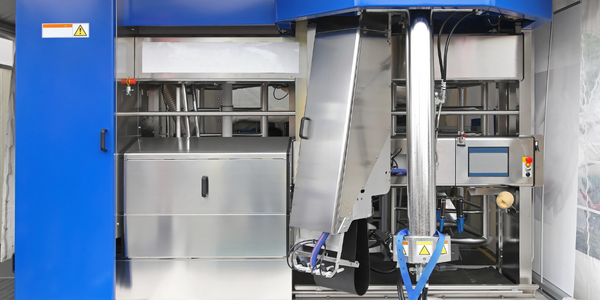Customer Company Size
Large Corporate
Region
- Europe
Country
- United Kingdom
Product
- CensorNet MFA
Tech Stack
- Multi-Factor Authentication
Implementation Scale
- Enterprise-wide Deployment
Impact Metrics
- Productivity Improvements
Technology Category
- Cybersecurity & Privacy - Identity & Authentication Management
Applicable Industries
- Agriculture
Applicable Functions
- Business Operation
Use Cases
- Remote Asset Management
Services
- Cybersecurity Services
About The Customer
Produce World Group is a leading grower and supplier of high-quality fresh vegetables in Europe. The company, which was established in 1898, is still privately owned and run by the fourth generation of the Burgess family. Specializing in potatoes, root vegetables, and alliums, Produce World operates across multiple sites in East Anglia and Forres in Scotland. While the majority of its produce is grown and sourced in the UK, the company also works with overseas growers to ensure year-round availability. Given the global nature of its operations, many employees need access to company systems, whether they are on farms, customer premises, or working remotely.
The Challenge
Produce World, a major supplier of fresh vegetables in Europe, operates across multiple sites and relies heavily on remote working. With employees needing access to company systems from various locations, including farms, customer premises, and home, the company faced a significant challenge in ensuring secure and convenient access. The rise in security threats, particularly phishing, necessitated a robust solution. The company had been using a hardware token-based two-factor authentication system, but recognized the vulnerabilities associated with relying solely on usernames and passwords.
The Solution
To protect the business from cyber threats and ensure secure access to company networks, Produce World decided to implement CensorNet MFA (Multi-Factor Authentication). This solution uses multiple variables to authenticate the user, including IP address, time of day, geographical location, and device. Once identified, the system sends a one-time passcode to the user's mobile, which expires in less than a minute. This approach significantly increases the level of security at login. The solution is also easy for employees to use, ensuring that they can log on to company systems from wherever they are without hindering productivity. New users can be added quickly, and employees who leave can be easily removed. The secure storage of employees' mobile numbers in the system also provides peace of mind about the protection of personal information.
Operational Impact

Case Study missing?
Start adding your own!
Register with your work email and create a new case study profile for your business.
Related Case Studies.
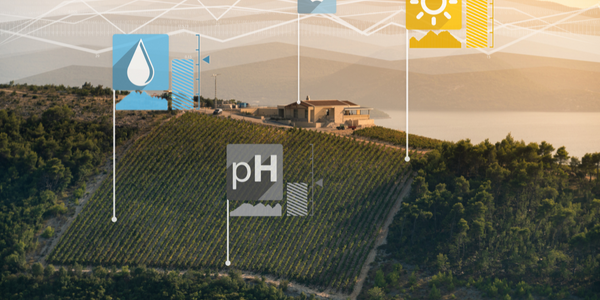
Case Study
Intelligent Farming with ThingWorx Analytics
Z Farms was facing three challenges: costly irrigation systems with water as a limited resource, narrow optimal ranges of soil moisture for growth with difficult maintenance and farm operators could not simply turn on irrigation systems like a faucet.
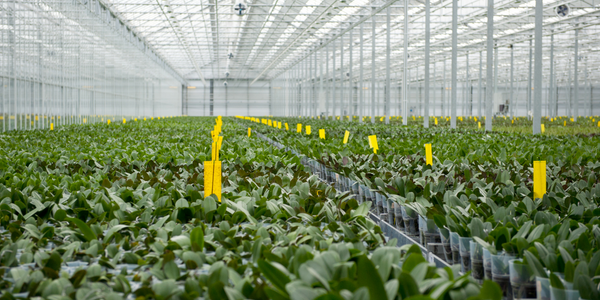
Case Study
Greenhouse Intelligent Monitoring and Control Solution
Farming Orchids is the most successful form of precision farming in Taiwan, and also the most exported flower. Orchids need a specific temperature and humidity conditions to grow and bloom, and its flowering time may not be in line with market demands, so the price collapses when there is overproduction. Therefore, some farmers began to import automated greenhouse control systems for breeding and forcing, which not only improves quality, but also effectively controls the production period and yield to ensure revenue. In 2012, an orchid farmer built a Forcing Greenhouse of about 200 pings (approximately 661 Square Meters) in Tainan, Taiwan. The system integrator adopted Advantech’s APAX-5000 series programmable automation controllers to build the control platform, coupled with Advantech WebAccess HMI/SCADA software, to achieve cloud monitoring. The staff of the orchid field can monitor important data anytime via smart phone, iPad, and other handheld devices, and control the growth and flowering conditions. System requirements: In the past, most environmental control systems of orchid greenhouses in Taiwan used PLCs (Programmable Logic Controller) with poorscalability and control, and could not be connected to the Internet formonitoring from the cloud. For advanced database analysis and networking capability, the PC platform must be adopted. Therefore, PAC Systems (Programmable Automation Controller) with both PLC programming capabilities andPC functions is a better choice.The environmental control of the Orchid greenhouse switches on and off devices like fan, shade net, cooling/heat pump, liquid flow control, water-cooling wall etc. It is controlled by a control panel of electric controllers, and is driven by a motor, to adjust the greenhouse temperature, humidity, and other environmental conditions to the set parameters.
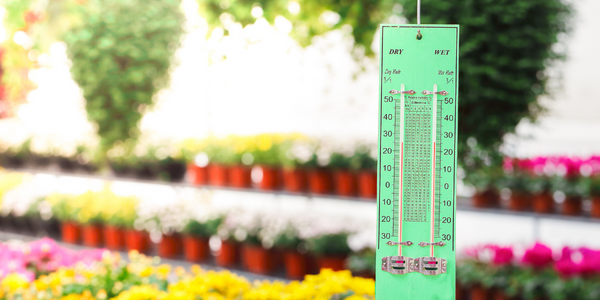
Case Study
Precision beekeeping with wireless temperature monitoring
Honeybees are insects of large economic value and provide a vital service to agriculture by pollinating a variety of crops. In addition, bees provide us with valuable products such as honey, beeswax, propolis, bee venom, etc. Monitoring of honeybee colony health, population, productivity, and environmental conditions affecting the colony health have always been exceedingly difficult tasks in apiculture. Research has shown that even small deviations (by more than 2°C) from the optimal temperatures have a significant influence on the development of the brood and the health of adult bees.
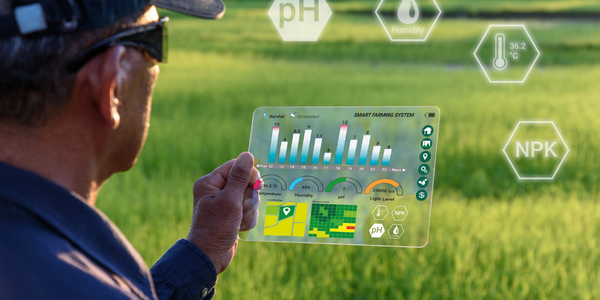
Case Study
Enabling Internet of Things Innovation in Agriculture
DigiBale, wanted to apply technology know-how and IP from implementations successfully to more agriculture sectors including cotton, forestry, sugarcane and cattle. However, farmers and growers still have worries about the connected technology.








